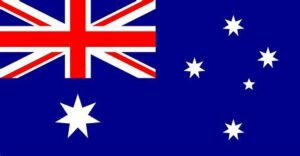
Australia Issues a Draft Law to Amend Global Minimum Tax Rules
On February 16, 2026, Australia issued the Taxation (Multinational—Global and Domestic Minimum Tax)
Amendment (2026 Measures No.1) Rules 2026, to amend its Global Minimum Tax Rules.
If the investment entity is treated as tax transparent in the owner’s jurisdiction anyway, then for tax purposes the income of transparent entities is taxed on the underlying owners. However, for accounting purposes, these entities would generally have their own financial accounts.
Given the GloBE rules rely on financial accounting information, specific additional rules are required to correctly allocate the income of transparent entities in a way that reflects most domestic tax treatment.
If special rules weren’t in place and the tax transparent entity was treated as having GloBE income and covered taxes under the standard GloBE rules, its ETR would often be zero and top-up tax would be due.
The purpose of this is again to try and align the GloBE rules with typical domestic tax treatment.
Investment funds are frequently tax-neutral entities under domestic law, with jurisdictions essentially looking to put investors into the fund in the same position for tax purposes as if they had made a direct investment.
Key amendments to the general GloBE rules are:
• Firstly, the financial accounting net income or loss of a transparent entity or reverse hybrid is reduced by any amounts due to owners that aren’t members of the MNE group.
This is necessary as the GloBE ETR of the group members won’t include income or taxes paid by non-group members.
• Secondly, if the transparent entity or reverse hybrid carries our business through a PE, this needs to be deducted from the accounting income of the transparent entity or reverse hybrid, given that permanent establishments (PEs) are treated as separate constituent entities for GloBE purposes.
• Finally, any remaining amount of the financial accounting income or loss is allocated to the owners if the entity is a transparent entity (based on their ownership interest).
This can flow up the chain if there are a number of transparent owners.

On February 16, 2026, Australia issued the Taxation (Multinational—Global and Domestic Minimum Tax)
Amendment (2026 Measures No.1) Rules 2026, to amend its Global Minimum Tax Rules.

On February 13, 2026, Poland issued a draft law to amend its Global Minimum Tax Law for the December 2023, June 2024 and January 2025 OECD Administrative Guidance. This also includes QDMTT changes, including the introduction of a Local Financial Accounting Standard rule.

On February 12, 2026, Cabinet Resolution No. (2) of 2026, was published in the Official Gazette to provide for the detailed implementation of the IIR and QDMTT in Qatar.

On February 6, 2026, the Italian Revenue Agency approved the model for the GloBE tax Return. This is a consolidated form with information on the calculation of top-up tax under the IIR, UTPR and QDMTT.

On January 29, 2026, Canada’s Department of Finance released draft GMTA technical amendments introducing an elective private investment entity de-consolidation rule for Pillar Two/GMTA purposes.

On January 30, 2026, Japan’s National Tax Agency issued a law implementation circular clarifying certain aspects of its UTPR and QDMTT.

In January 2026, Canada issued the filing procedures for the GIR, GMT Return and the Double Filing Relief Notification.

On January 19, 2026, South Korea issued a Draft Law to amend the Enforcement Decree to the International Tax Adjustment Act. This provides for detailed provisions for the application of the QDMTT and will also extend the Transitional CbCR Safe Harbour by 1 year (as provided in the January 2026 OECD Side-by-Side Package).

On January 19, 2026, the Hong Kong Inland Revenue Department opened its E-filing portal for the submission of Top-Up Tax Notifications
| Cookie | Duration | Description |
|---|---|---|
| cookielawinfo-checkbox-analytics | 11 months | This cookie is set by GDPR Cookie Consent plugin. The cookie is used to store the user consent for the cookies in the category "Analytics". |
| cookielawinfo-checkbox-functional | 11 months | The cookie is set by GDPR cookie consent to record the user consent for the cookies in the category "Functional". |
| cookielawinfo-checkbox-necessary | 11 months | This cookie is set by GDPR Cookie Consent plugin. The cookies is used to store the user consent for the cookies in the category "Necessary". |
| cookielawinfo-checkbox-others | 11 months | This cookie is set by GDPR Cookie Consent plugin. The cookie is used to store the user consent for the cookies in the category "Other. |
| cookielawinfo-checkbox-performance | 11 months | This cookie is set by GDPR Cookie Consent plugin. The cookie is used to store the user consent for the cookies in the category "Performance". |
| viewed_cookie_policy | 11 months | The cookie is set by the GDPR Cookie Consent plugin and is used to store whether or not user has consented to the use of cookies. It does not store any personal data. |